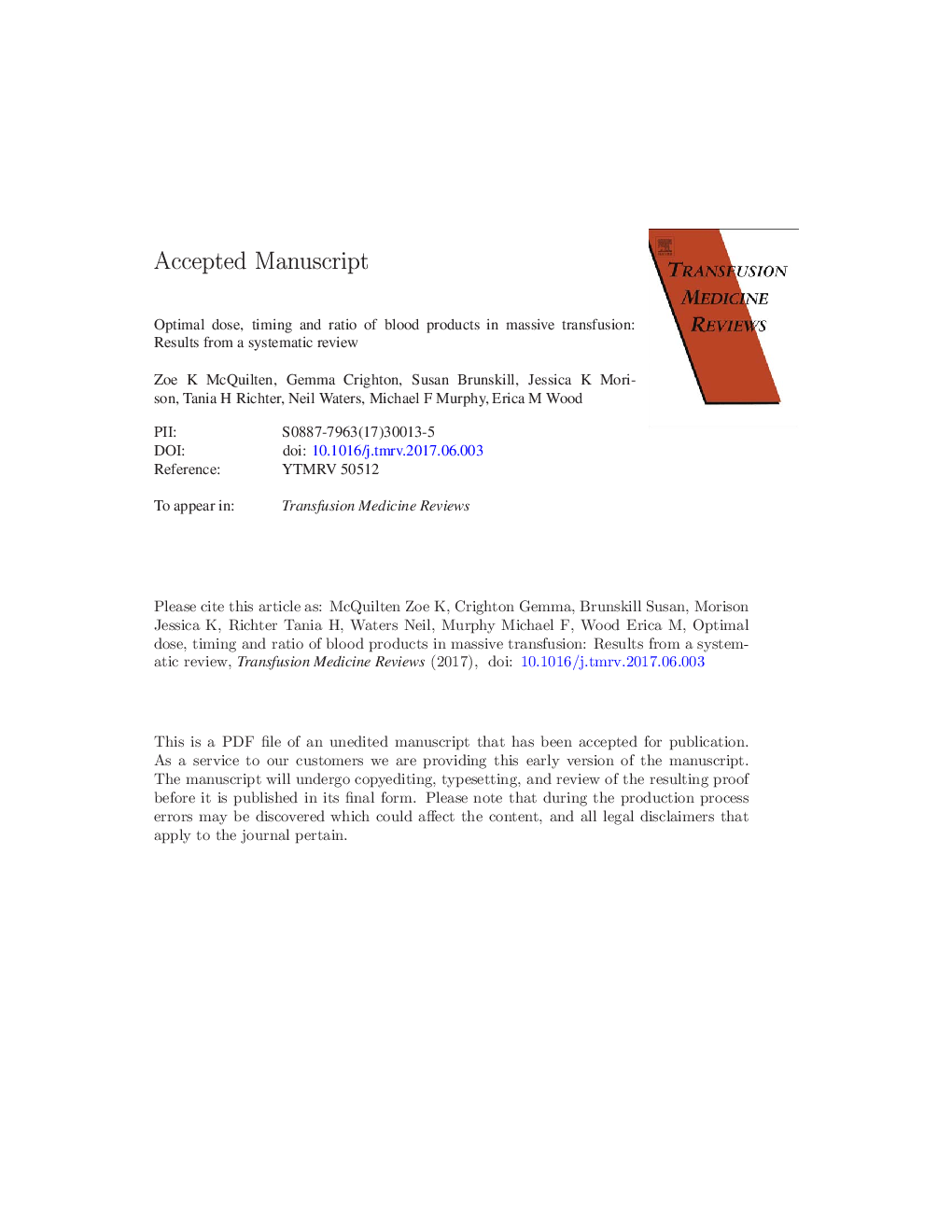| Article ID | Journal | Published Year | Pages | File Type |
|---|---|---|---|---|
| 8735192 | Transfusion Medicine Reviews | 2018 | 30 Pages |
Abstract
Optimal dose, timing and ratio to red blood cells (RBC) of blood component therapy (fresh frozen plasma [FFP], platelets, cryoprecipitate or fibrinogen concentrate) to reduce morbidity and mortality in critically bleeding patients requiring massive transfusion is unknown. We performed a systematic review for randomized controlled trials (RCT) in MEDLINE, The Cochrane Library, Embase, CINAHL, PubMed the Transfusion Evidence Library and using multiple clinical trials registries to 21 February 2017. Sixteen RCTs were identified: six completed (five in adult trauma patients, one pediatric burn patients) and ten ongoing trials. Of the completed trials: three were feasibility trials, comparing a FFP, platelets and RBC ratio of 1:1:1 to laboratory-guided transfusion practice [n = 69], early cryoprecipitate compared to standard practice [n = 41], and early fibrinogen concentrate compared to placebo [n = 45]; one trial compared the effect of FFP, platelets and RBC ratio of 1:1:1 with 1:1:2 on 24-hour and 30-day mortality [n = 680]; one compared whole blood to blood component therapy on 24-hour blood use [n = 107]; one compared a FFP to RBC ratio of 1:1 with 1:4 [n = 16]. Data from two trials were pooled in a meta-analysis for 28-day mortality because the transfusion ratios achieved were similar. Results from these two trials suggest higher transfusion ratios were associated with transfusion of more FFP and platelets without evidence of significant difference with respect to mortality or morbidity. On the limited evidence available, there is insufficient basis to recommend a 1:1:1 over a 1:1:2 ratio or standard care for adult patients with critical bleeding requiring massive transfusion.
Keywords
Related Topics
Health Sciences
Medicine and Dentistry
Hematology
Authors
Zoe K. McQuilten, Gemma Crighton, Susan Brunskill, Jessica K. Morison, Tania H. Richter, Neil Waters, Michael F. Murphy, Erica M. Wood,
